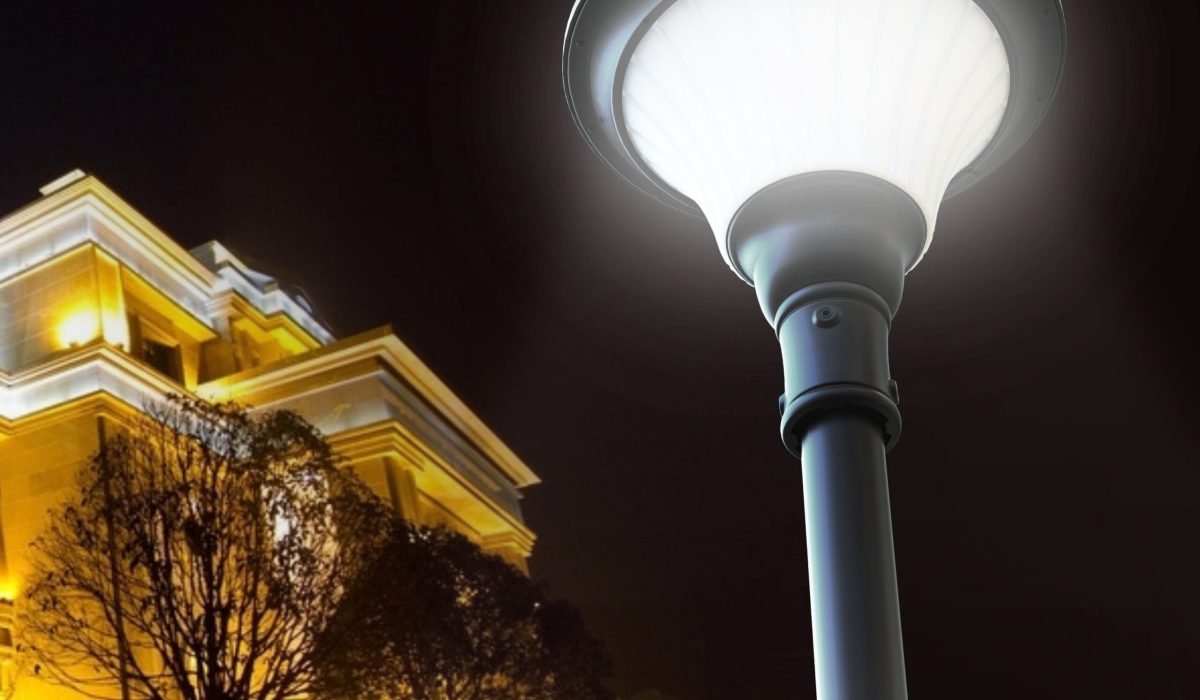Are you wondering whether aluminum is the best material for street light poles? Choosing the wrong material can lead to issues like corrosion, high maintenance costs, or even structural failure. Aluminum is a popular choice for many applications, but is it always the right one?
Yes, many street light poles are made of aluminum due to their corrosion resistance, lightweight properties, and durability. Aluminum poles are ideal for urban, residential, and coastal areas, offering both functionality and aesthetic appeal.
Let’s explore why aluminum is so commonly used and how it compares to other materials.
Why Aluminum is Commonly Used for Street Light Poles
Aluminum has become a go-to material for street light poles, thanks to its unique combination of properties:
- Corrosion Resistance:
Aluminum naturally forms a protective oxide layer that prevents rust, making it ideal for outdoor use, especially in humid or coastal areas where steel would quickly corrode. - Lightweight:
Unlike steel or concrete, aluminum is much lighter, which simplifies transportation, reduces installation costs, and requires less heavy-duty equipment. - Durability:
Despite being lightweight, aluminum is incredibly strong and can withstand harsh weather conditions. It is also resistant to cracking and bending under stress. - Aesthetic Appeal:
Aluminum poles can be anodized or powder-coated in various finishes and colors, providing a modern, sleek look that complements urban and residential areas. - Eco-Friendly:
Aluminum is fully recyclable, making it an environmentally sustainable choice.
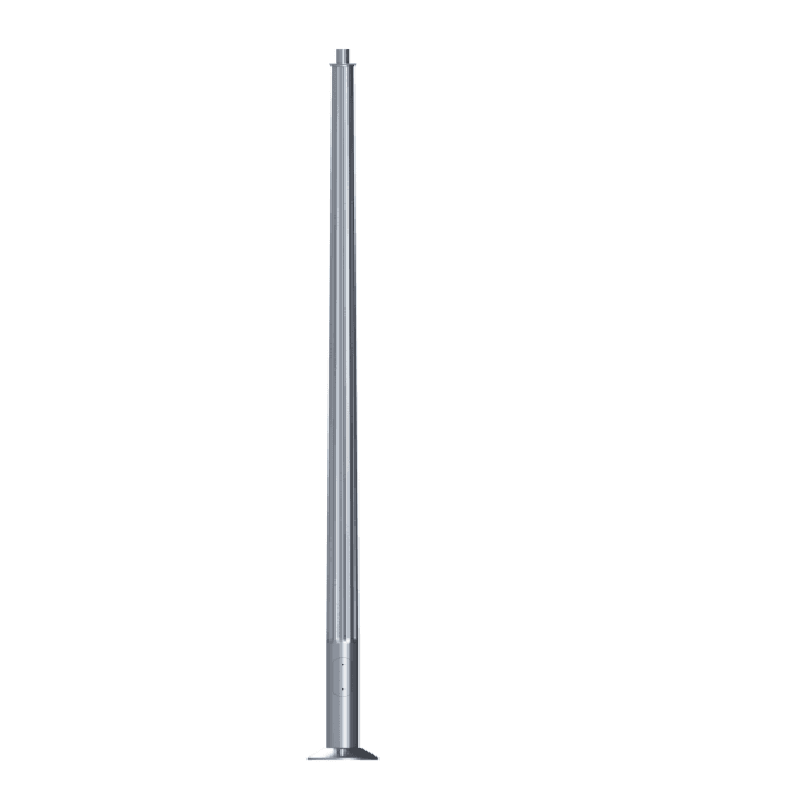
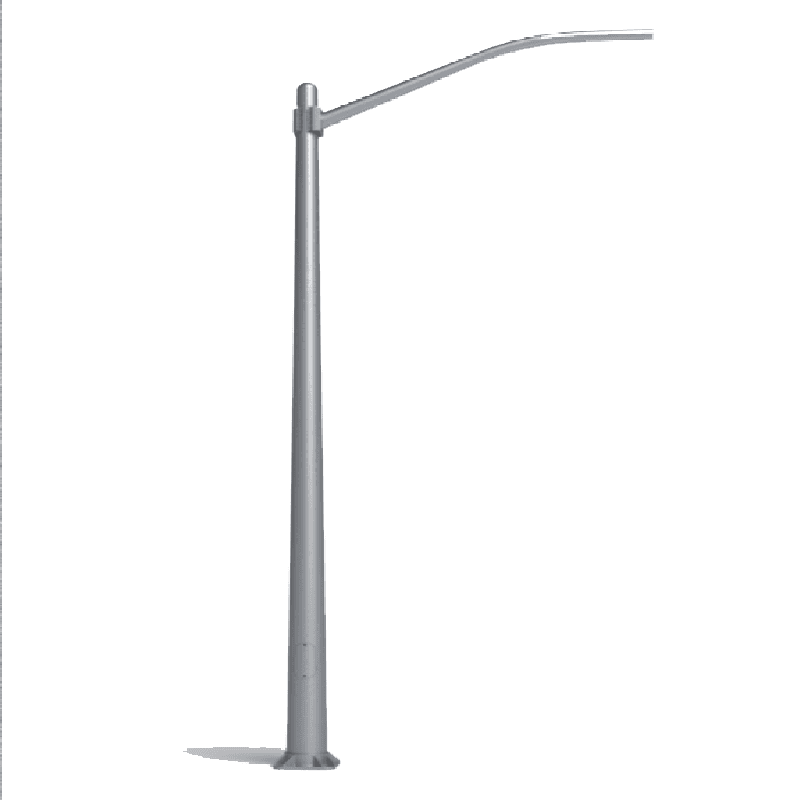
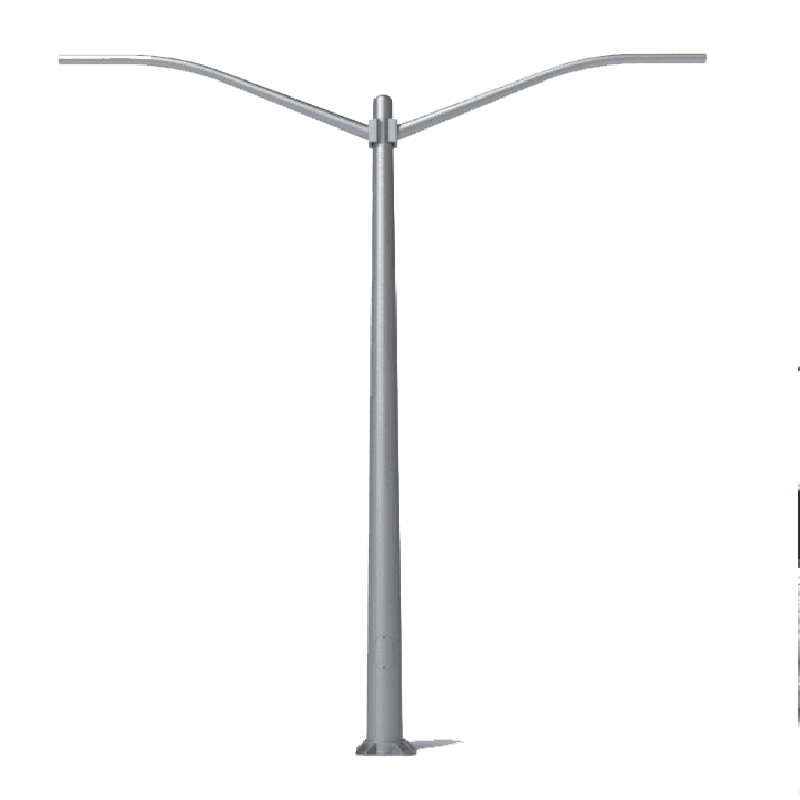
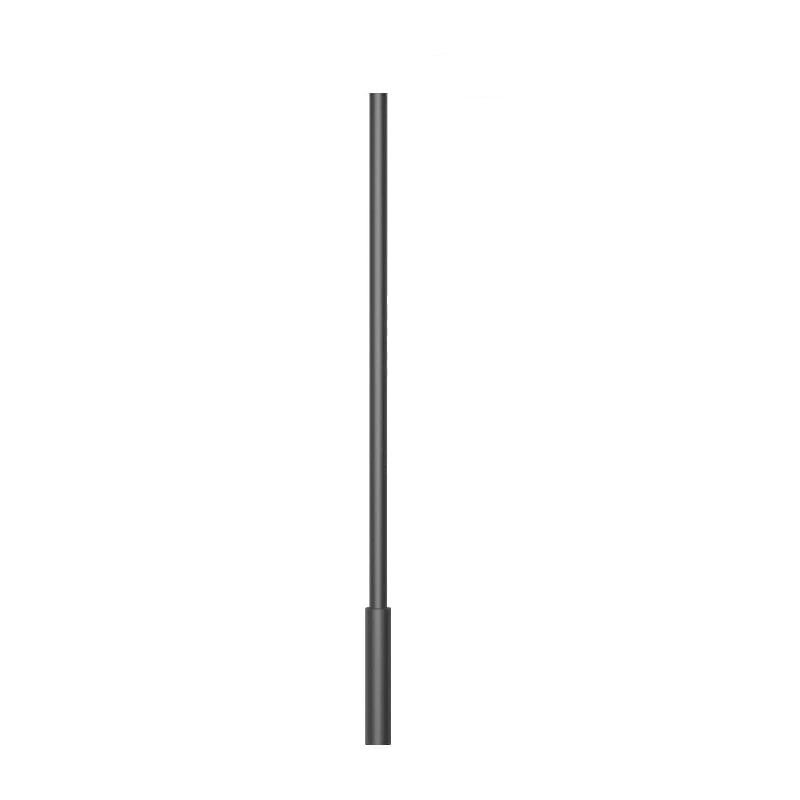

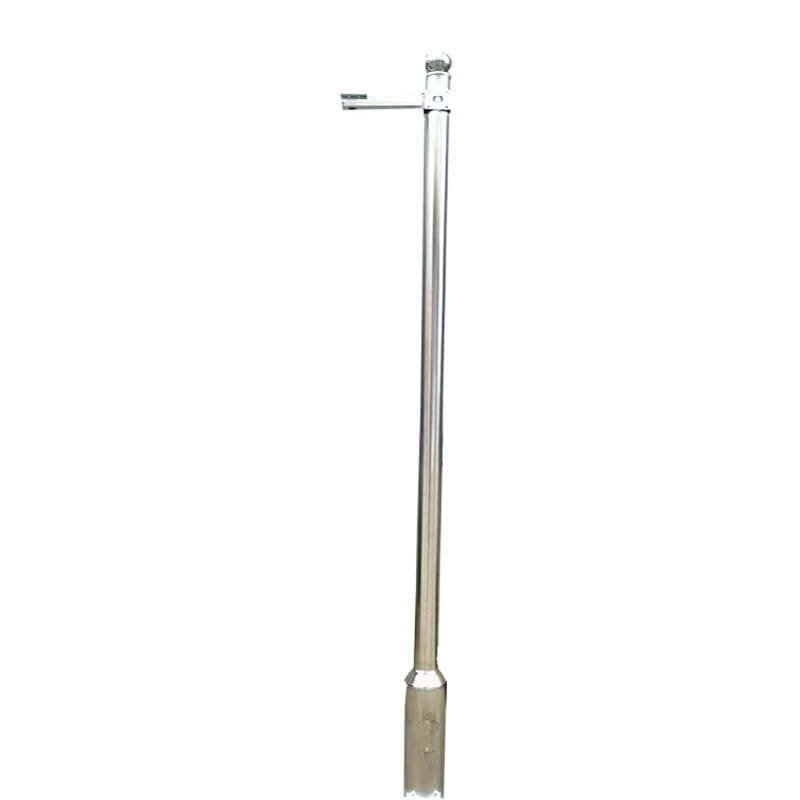
Comparison with Other Materials
While aluminum is widely used, other materials also have specific advantages:
| Material | Advantages | Drawbacks |
|---|---|---|
| Aluminum | Lightweight, corrosion-resistant, recyclable | Higher initial cost compared to steel |
| Steel | High strength, cost-effective | Prone to rust in humid or coastal areas |
| Fiberglass | Non-corrosive, chemical-resistant | Brittle under impact, higher cost |
| Concrete | Extremely durable, low maintenance | Heavy, expensive to transport and install |
Key Insight: Aluminum offers the best balance between strength, weight, and resistance to environmental factors, making it the ideal choice for many urban and coastal applications.
Where Aluminum Street Light Poles Work Best
Aluminum street light poles excel in the following settings:
- Urban and Residential Areas:
Their sleek, modern design and ease of installation make them perfect for city streets and neighborhoods. - Coastal Regions:
Aluminum’s corrosion resistance ensures long-lasting performance in salt-heavy environments. - Decorative Lighting:
Aluminum’s flexibility allows for custom designs, making it an excellent choice for parks, plazas, and pedestrian zones.
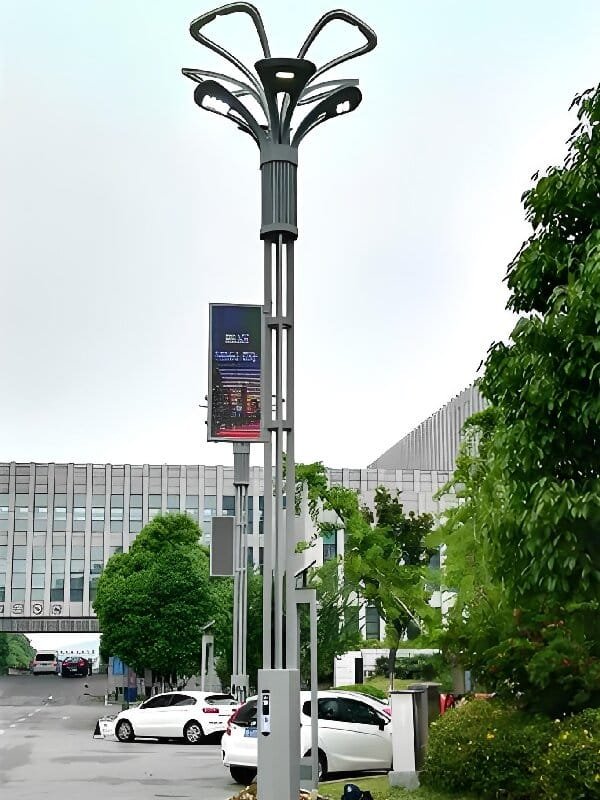
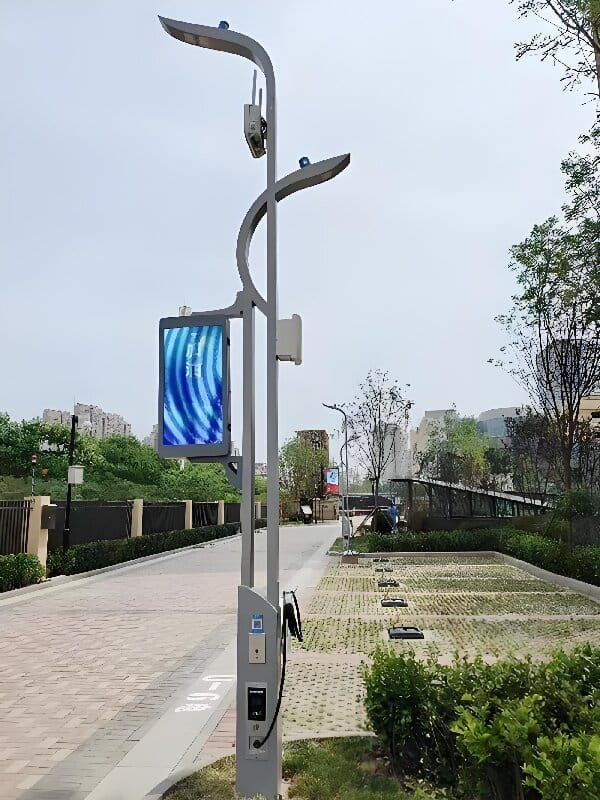
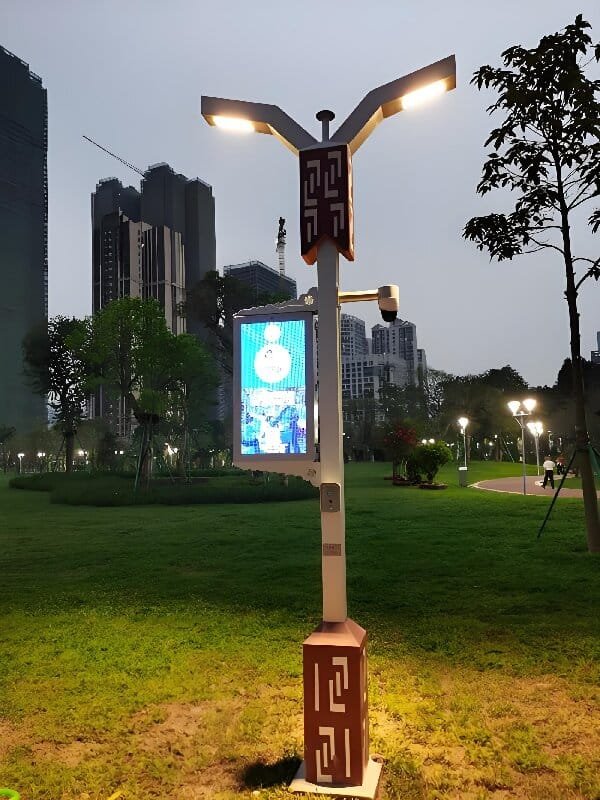
How to Choose the Right Material for Street Light Poles
When selecting a material, consider the following:
- Environment:
- Use aluminum in coastal or humid regions to prevent rust.
- Steel may be suitable for dry, inland areas with minimal exposure to moisture.
- Use aluminum in coastal or humid regions to prevent rust.
- Budget:
- While aluminum may have a higher upfront cost, its low maintenance and long lifespan often make it more cost-effective over time.
- While aluminum may have a higher upfront cost, its low maintenance and long lifespan often make it more cost-effective over time.
- Design Requirements:
- Aluminum offers greater flexibility for custom shapes and finishes, making it ideal for decorative applications.
- Aluminum offers greater flexibility for custom shapes and finishes, making it ideal for decorative applications.
- Structural Needs:
- For areas requiring heavy-duty poles, such as highways, consider steel or concrete.
- For areas requiring heavy-duty poles, such as highways, consider steel or concrete.
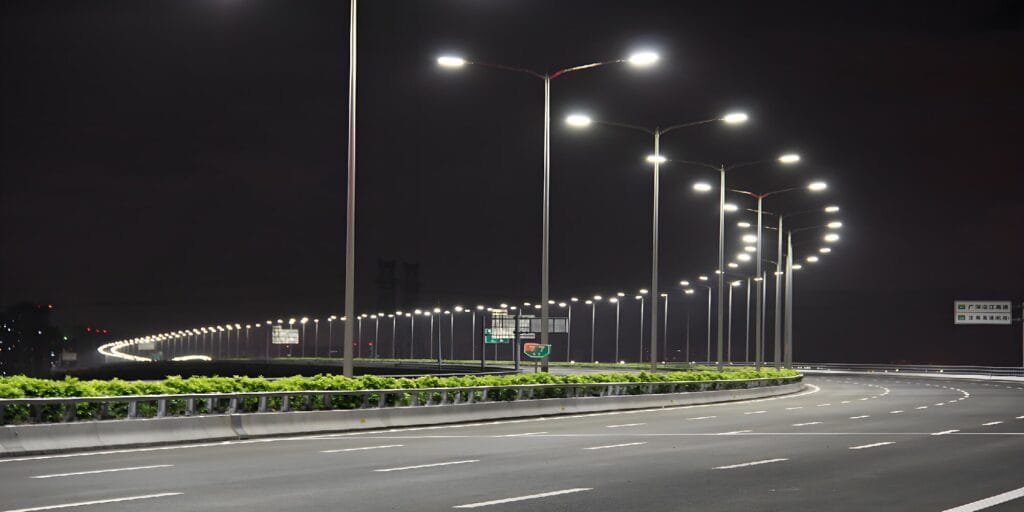
Conclusion: Aluminum Poles for Modern Street Lighting
Aluminum street light poles are a versatile and durable choice for a wide range of applications. With their corrosion resistance, lightweight design, and eco-friendly properties, they are well-suited for urban, residential, and coastal environments.
Still unsure which material is right for your project? Consult a professional to assess your specific needs and make an informed decision.

